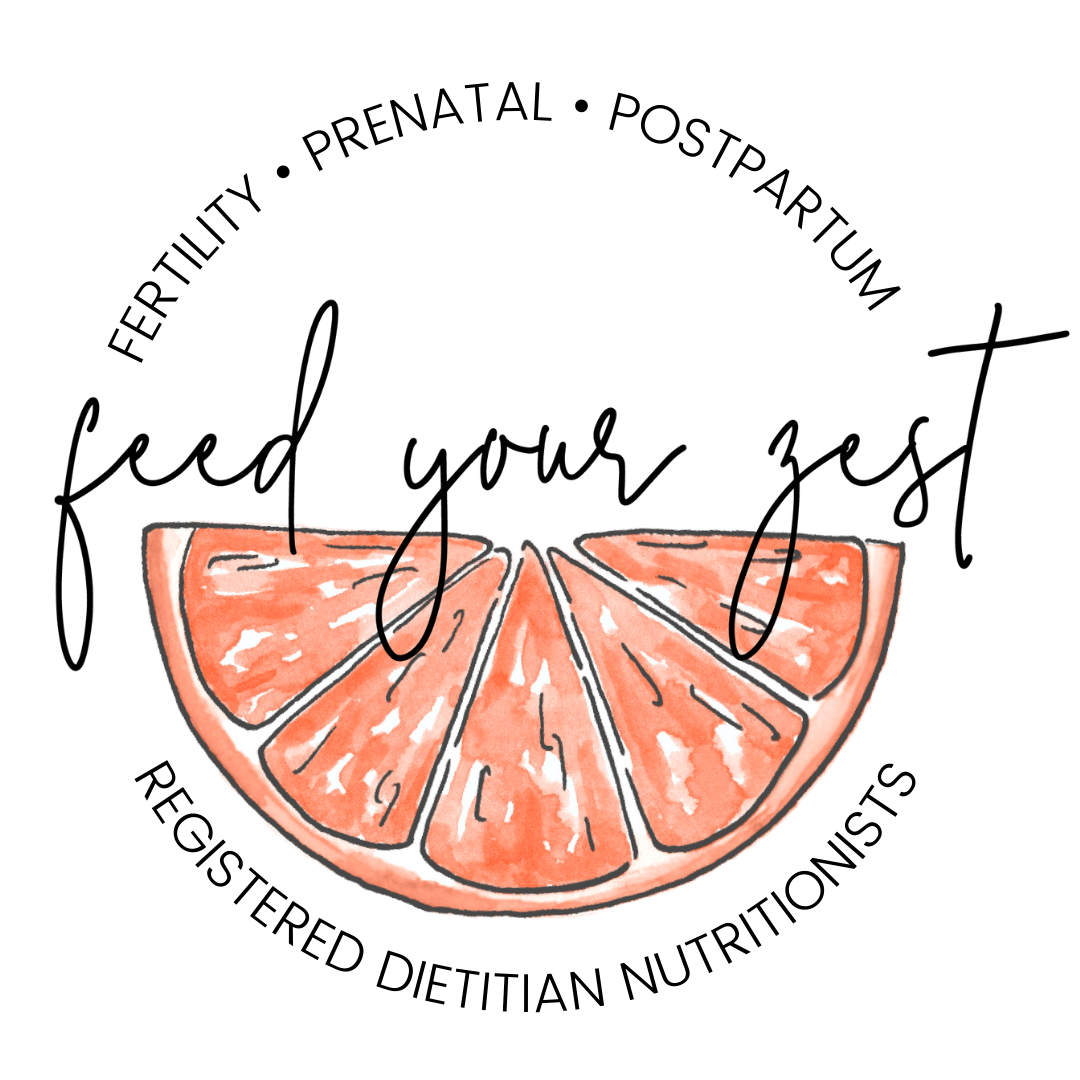Sustainable Nutrition for Fertility and Pregnancy
By Anna Abel, Dietetic Intern
Have you ever wondered: “How do we practice sustainability while keeping nutrition in mind?”
Oftentimes we hear the word sustainability mentioned and our minds immediately think of vegan, or plant based, being the sole way to be sustainable. While it might be one method, it is certainly not the only one as there are plenty of other practices to apply. Some of these practices only require small changes in day to day life. These practices can improve your carbon footprint and help with nutrition in fertility and in pregnancy as well.
Grocery Shopping
Should I use less plastic?
Using less plastic bags and containers means less Endocrine Disrupting Chemical exposure. Not only that, but it is also better for the environment to reduce the usage of plastic items. Take notice of food packaging, and make an effort to select more whole foods, like a piece of whole fruit rather than sliced up fruit in plastic containers. Try buying some dry food in bulk, like nuts, rice or quinoa, while using glass or metal containers to store them.
What do I do about food waste?
If you find that you have a lot of food waste, mindfully consider how you can move forward with purchasing less. You can always consider buying groceries more frequently to not overestimate your food needs without judgment. If you grocery shop weekly, and discover you waste a lot of groceries, try grocery shopping 2 times a week so you may have a better idea of how much you will actually need for a week. Remember, that compared to the food waste that happens on an industrial level, the food that accidentally gets wasted in your home is very minor. You can always become an advocate for industrial food waste if this is a cause that is important to you.
Bring some reusable bags with you to the grocery store, or to the farmer’s market, in order to cut down on plastic and paper grocery bags. A helpful tip would be to place a few folded up in your trunk for later use, in case you forget and want to use them!
Should I be shopping locally?
Shopping locally, and buying locally sourced food, can help cut down on carbon emissions that result from transportation. Seek out your local farmer’s market. Farmer’s markets have locally grown and/or raised foods that typically go straight from a farm to the market for sale for your purchase. A lot of stores and product labels list whether or not a product is locally sourced. If your budget allows it, then do your best to purchase more locally sourced items. For North Carolina residents, look for the label titled “Got to Be NC!” on your food items, as this means it is locally sourced from the state of North Carolina. If you aren’t in North Carolina, don’t fret! There’s a good chance your city or state will have something similar to this.
At Home
How about recycling?
Have a recycling bin for plastics, cans and paper items so they can be reused. If you are unsure about how to recycle properly in your area, check out your local government policies for recycling online. There are also recycling drop offs that are likely to be close to you!
What about plastic at home?
Reducing the amount of single-use plastic products you use at home can also help care for the environment, and reduce your exposure to endocrine disrupting chemicals too. Switching to a reusable water bottle and glass or silicone food storage containers would be great options for this.
Foods to Eat
Is variety important too?
When we select more varieties of foods from our local vendors, it ensures the farmer can grow more types of food based on the demand of the foods. This means, the more variety of fruits, veggies and meats that we eat, the more variety is produced for everyone. The farmer’s market is another great option for maintaining variety in our diets, as many farmers grow different foods.
I’ve heard about eating seasonally, what does it mean?
Most fruits and vegetables grow and mature during specific times in the year, which means that those times are the best time to eat that food. When these fruits, vegetables and legumes are in season, they have the highest level of nutrients in them (and they taste better, too!). Check out previous blogs about fruits and veggies for fertility and pregnancy!
For those who live in North Carolina, look at the North Carolina Department of Agriculture seasonal foods chart, located online, to see when various fruits, veggies and legumes are in season. Located anywhere else? That's okay too! Check out the Seasonal Food Guide to see what is in season currently in your area, and throughout various times of the year!
As you can see, there are many approaches that can help you on the road to sustainability. Some of these may be easy changes to make, some may be ones that you aren’t ready for yet, and that is okay too! Want more support on navigating sustainable food choices while nourishing your body for fertility and pregnancy? Our program Fully Nourished Pregnancy can help you make eating choices that honor your health AND your values. Click here to enroll in Fully Nourished Pregnancy today!

